Respiratory Problems Nutritional Guide
Even though it is not always talked about, respiratory problems are becoming more and more of an issue in America today--with asthma, lung disease, and COPD being at the top of the list. One might ask why this could be the case considering that new research is being discovered on almost a weekly basis? The answer boils down to stress. When we let stress stay in our bodies for long periods of time, our body goes into a fight or flight mode; sending signals to the rest of the body that it is in danger when no real danger is eminent and as a result, inflammation occurs all over the body--including the respiratory system. In order to undo the damage caused by stress, we have to make sure that the body has all of the adequate tools needed. Below are a list of foods that will help in that process--by reducing inflammation in the body, strengthening the immune system and by reducing and managing stress.
(Note: Even though it might seem obvious, we would like to remind you that smoking should at all times be avoided especially when dealing with respiratory problems.)
Proteins
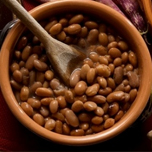

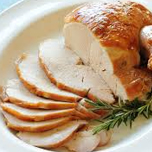


Beans
Rich in fiber, these legume family members contain important nutrients such as folic acid, iron, and magnesium. These can be a great addition to salads, stews, and soups. Some great examples are garbanzo beans, kidney beans, and black beans.
Chicken
Choose boneless, skinless chicken breast (remember that organic is key) and free range chicken as this will help improve serotonin levels. Avoid fried chicken for this will do exactly the opposite.
Turkey
Choose white meat over dark meat for a good source of lean protein. Stay away from ground turkey that isn’t made with turkey breast as other ground turkey contain undesirable parts.
Fish
Choose fish such as salmon, herring, and tilapia to improve Omega-3 fatty acids intake. Remember, choose fish that is labeled as wild-cut as other fish contain unwanted chemicals and hormones that aren’t good for your body.
Egg Whites
This food is high in protein, low in calories, and contains no fat, making it an excellent snack or meal that can keep you satisfied. Remember to always look for organic-free range eggs when shopping.
Fruits and Vegetables
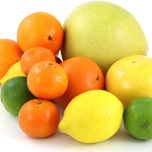
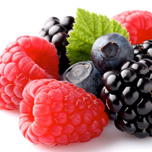
Citrus Fruit
Some great examples are lemons, oranges, and grapefruits--with lemons helping to balance out equilibrium in the body. These super fruits help fight off asthma due to the antioxidants they carry; they are also a great source of vitamin C.
Berries
These small and delicious fruits contain many antioxidants, which help decrease inflammation--including those located in the airways.
Pomegranate
Pomegranates are an excellent source of Punicalagin, which gives it its antioxidant benefits.
Pineapple
Pineapple contains bromelain, which has anti-inflammatory properties and helps clean the throat.
Papaya
This fruit is a great source of bioflavonoid, which is an antioxidant that helps absorb Vitamin C.
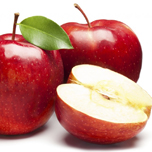
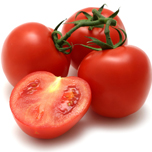
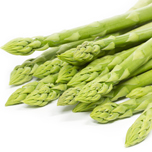
Apple
This fruit is full of vitamins and minerals as well as fiber that helps lower levels of “bad” (LDL) cholesterol.
Tomato
These red fruits are full nutrients such as iron, Vitamin E, and Vitamin C along with antioxidants that helps fight asthma and other inflammatory problems.
Cabbage
Cabbage is full of vitamin K and bioflavonoids, which helps to reduce inflammation--including those in the respiratory system.
Asparagus
Low in calories and high in nutrients, asparagus has the ability to lower the cholesterol levels and helps to repair the tissues in the body.
Mushrooms
Mushrooms are an excellent source of Vitamin D and contain many other health benefits, such as lowering blood cholesterol and aiding in stimulating the immune system as well as promoting good eyesight.
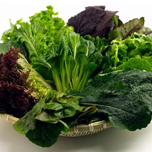
Broccoli
This vegetable is an excellent source of Vitamin C and beta carotene, which all contribute in strengthening the immune system and reducing inflammation.
Dark Leafy Grrens
These are great nutrient-rich foods and should be included in your daily consumption. Some of the nutrients contained in these greens include vitamins K, C, and E along with fiber, which helps in digestion. Great examples are spinach, kale, collards, and bok choy.
Whole Grains and Seeds
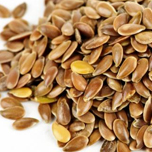
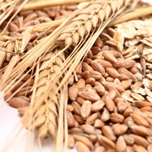
Flax Seed
High in fiber and Omega-3 fatty acids, flax seeds are full of vitamins, phytonutrients, and protein. Its health benefits include support to the immune system--which is needed when combating respiratory issues, excellent cholesterol levels and digestion. When buying, remember to only purchase whole flax seeds as ground flax seeds lose the essential nutritional benefits.
* Flaxseed is a powerful nutrient-rich food and daily consumption should not exceed 1-2 Tbsp.
Whole Grain Wheat
Whole wheat contains fiber along with an assortment of vitamins and minerals. When buying, remember to only purchase wheat labeled as 100% Whole-Grain as other wheat do not contain the same nutritional benefits.
Millet
This grain is packed with amino acids, phosphorous, iron, potassium, and manganese. Its high silica contents also helps promote good blood cholesterol. Millet can make an excellent addition to cereals and desserts.
Kamut
Kamut is full of many nutrients including vitamins E, B1, and B2 along with selenium, magnesium, phosphorous, and zinc, which all work together to reduce respiratory problems--with the vitamins helping to decrease inflammation and magnesium relaxing the bronchial muscles. This can be best found in any local health food store in bulk.
Spelt
This grain is a complex carbohydrate and provides energy as well as fiber.
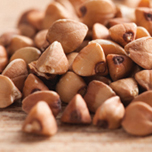
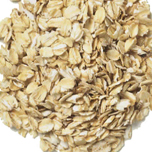
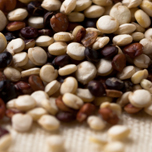
Buckwheat
Buckwheat is rich in rutin, which helps to reduce inflammation as well as blood pressure. This can be used as a cereal and can be included in baked goods.
Oat
This grain is versatile and can be added to smoothies and replace breadcrumbs along with making a great breakfast selection. Be sure to stay away from instant flavored oatmeal as these contain large amounts of refined sugar and other unhealthy ingredients. Oats are an excellent choice because they help to regulate blood glucose and insulin levels, making you feel fuller for a longer period of time.
Quinoa
Quinoa is a great source of nutrients--calcium, phosphorus, and iron being a part of it as well as vitamin E and most of the vitamins B--it also contains protein. This versatile seed can replace oats for oatmeal, be served as a salad, and can be added to thicken soups.
Hemp
Hemp contains protein and can be added to desserts along with cereals when using hemp milk.
Healthy Fats
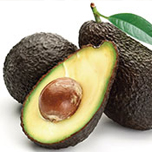


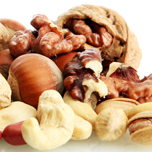
Avocado
Full of monounsaturated fats, or “healthy fats” the avocado has the ability to lower blood cholesterol. *Those taking blood thinners should check with their doctor before eating this fruit as it may conflict with medications.
Flax Oil
Flaxseed oil is rich in Omega-3 fatty acids, which is important for the human body. When shopping for flaxseed oil, remember to choose oil labeled with lignan and is the refrigerated kind.
Olive Oil
Rich in healthy fats, olive oil also aids in reducing LDL cholesterol and raising HDL (“good”) cholesterol. When buying, be sure to purchase oil labeled as extra virgin, cold pressed as it contains more antioxidants than olive oil not cold pressed. Be sure to consume in moderation.
Nuts
Nuts contain healthy fats and protein as well as magnesium and fiber. Be sure to eat unsalted raw nuts which contain no added ingredients. Nuts are also very easy to snack on so be sure to watch consumption as too much is not ideal for the body. A reasonable amount is a scant handful.
Coconut Oil
This special oil contains Medium-chain fatty acids which are necessary for our body’s daily functions and has properties that make it able to not produce dangerous trans fatty acids. This can be spread on breads and added to any desserts. For the best health benefits, look for the coconut oil labeled as virgin.
Seeds
Raw sunflower seeds and pumpkin seeds as well as chia seeds are excellent examples. They are full of Vitamin E, which helps reduce inflammation, as well as a good source of magnesium. Whenever possible, sprout the seeds as this helps give the body the most benefits.
*When facing any type of respiratory problem, REMEMBER it’s important to be drinking lots of fluids such as water, coconut water and nutritional smoothies. Dairy products are not recommended as they help cause inflammation and mucus. The only recommendation is pure Kefir and if you need to use milk, replace it with nut milks such as almond, cashew, hemp, and brazilian nut.
©2021 Phytotherapi. All rights reserved.
